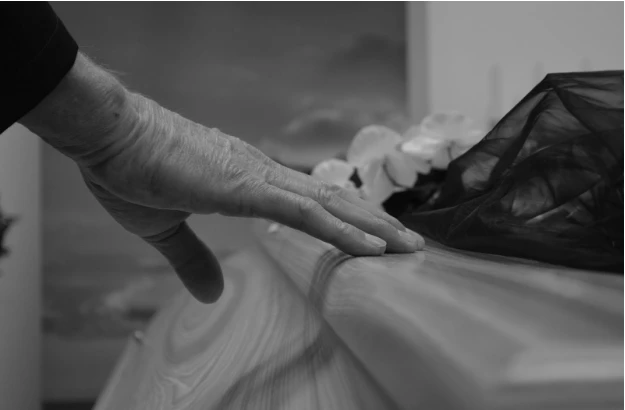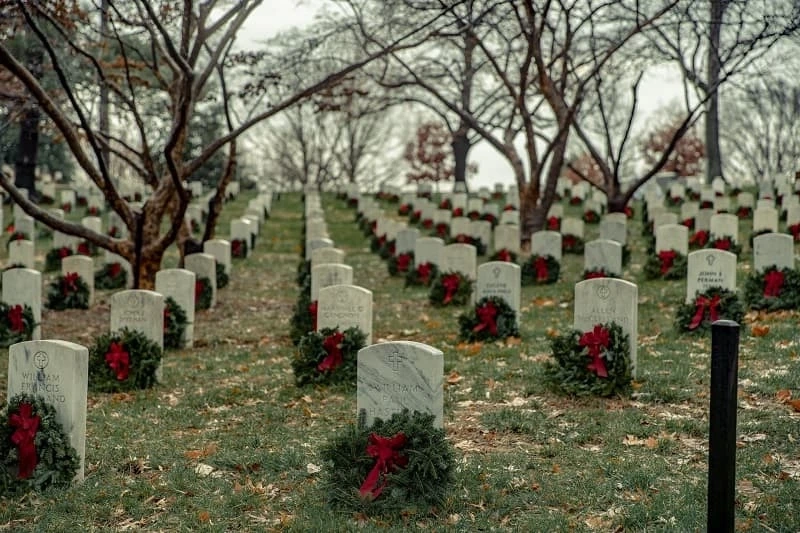When someone dies, it is a difficult time for the family and friends of the deceased. One of the most important things that need to be done during this time is to plan the funeral.
This can be an overwhelming task, but it doesn\'t have to be. You can make the process easier for yourself and your loved ones by asking the right questions. In this blog post, Willow wicker coffins list down the top questions to ask when planning a funeral.
1. What are the deceased\'s final wishes?
If the deceased has left behind a will or any other document outlining their final wishes, consider these when planning the funeral. This will ensure the funeral is carried out as the deceased would have wanted.
How do you incorporate the deceased\'s final wishes into the funeral?
If the deceased has left behind a will or any other document outlining their final wishes, consider these when planning the funeral.
But in the event of sudden death or if the deceased did not leave instructions, you can ask their close friends or family members for guidance.
You should also consider what kind of funeral would be meaningful for the surviving loved ones. Would a traditional funeral service be more appropriate, or would a celebration of life be more fitting?
2. Who will be responsible for planning the funeral?
Losing a loved one is hard on everyone involved. To make things easier, it\'s best to designate one person in charge of the funeral arrangements. This will ensure that all tasks are taken care of, and that everyone is on the same page.
Funerals are a trying time for families; unfortunately, the stress of arranging a funeral can cause conflict. If possible, avoid this by having a clear plan and open communication with everyone involved.
Who will pay for the funeral?
In most cases, the responsibility for paying for the funeral falls on the shoulders of the deceased\'s family. But if you have other arrangements, such as insurance policies or prepaid funeral plans, let the funeral director know.
This is an important question to ask early on, as it will help you determine what kind of funeral service you can afford.
3. What are your budget and time constraints?
Funerals are a time of mourning but can also be a financial burden. When planning a funeral, you must consider your budget and how much time you have to plan the service.
Some questions you should ask yourself include:
When budgeting for a funeral, ask the funeral director for a breakdown of all the costs involved. This will help you understand what you\'re paying for and whether there are any hidden fees.
As for time constraints, remember that funerals usually occur within a few days of the death. This means you\'ll have to act quickly to make all the arrangements. Ask yourself and the family these questions:
- When do you want the funeral to be?
- How much time do you have to plan the funeral?
- Do you need to take time off work?
- How much is the budget?
4. What is the best way to honor the deceased?

The goal of a funeral is to provide a meaningful send-off for the deceased. To do this, you must first understand what was important to them in life. Consider their hobbies, passions, and beliefs when planning the service.
Don\'t opt for a traditional funeral service if it\'s not what the deceased would have wanted. Instead, focus on creating a tribute that celebrates who they were in life.
How do you figure out what the deceased was like?
If you didn\'t know the deceased very well, ask their close friends or family members for guidance. They can give you a better idea of the deceased and how to honor them.
Look through the deceased\'s belongings for clues. Anything from photos to favorite books can provide insight into their life and personality. Some questions you can ask to help you plan a fitting tribute include:
- What are some of the deceased\'s favorite things?
- How did they spend their free time?
- What were their hobbies?
- What are some of their favorite memories?
- Who were the most important people in their life?
- What did they believe in?
5. How do you want the funeral to look and feel?
After you\'ve decided on the type of funeral service, it\'s time to start planning the details. This includes everything from the venue to the music to the eulogy. Think about what kind of atmosphere you want to create.
Do you want it to be a somber occasion or a celebration of life? What kind of music would the deceased appreciate? Who will give the eulogy?
Why is this important?
The funeral is a chance to say goodbye to the deceased and celebrate their life. By planning a funeral that reflects their personality, you can create a meaningful tribute that everyone will remember.
6. Did the deceased want a cremation or burial?
This is an important question to ask early on in the planning process. Cremation and burial are common methods of disposing of the body, but they differ greatly.
What\'s the difference?
Cremation is less expensive than burial but still requires a funeral service. If you choose cremation, you\'ll need to decide whether you want a traditional funeral or memorial service.
On the other hand, burial is more expensive but doesn\'t require a funeral service. You can also choose to have the body buried in a cemetery, mausoleum, or natural burial ground. Ask:
- If cremated, what type of funeral service would the deceased want?
- Do you want to bury or scatter the ashes?
- If buried, where do you want the body to be laid to rest?
- What are the costs involved with each option?
7. Would the deceased have liked an eco-friendly funeral?
Eco-friendly funerals are becoming more popular as people look for ways to reduce their environmental impact. If the deceased were environmentally conscious, they might have wanted an eco-friendly funeral.
What is an eco-friendly funeral?
An eco-friendly funeral minimizes the impact on the environment. This can be done in several ways, such as using sustainable materials, avoiding single-use items, and choosing a local funeral home.
From choosing biodegradable coffins like Bamboo eco wicker coffins, Affordable cardboard coffins, or wool to avoiding flowers that require excessive pesticides, there are many ways to make a funeral eco-friendly.
What are the benefits of an eco-friendly funeral?
Eco-friendly funerals are not only better for the environment but can also be more economical. They also allow you to honor the deceased in a way that reflects their values.
8. Who should give the eulogy?
The eulogy is one of the most important parts of the funeral. It\'s a chance to share memories and stories about the deceased.
If you\'re close to the family, you might be asked to give the eulogy. But if you don\'t feel comfortable speaking in front of a large group, there are other ways to contribute.
You could write a letter to be read at the funeral, choose music important to the deceased, or share a favorite memory.
What should a eulogy include?
If you\'re giving the eulogy, you\'ll want to include some of the deceased\'s favorite things, stories about their life, and your fondest memories with them. You should also focus on how they impacted your life and the lives of others.
What shouldn\'t be included in a eulogy?
A eulogy is not the time to air dirty laundry or speak ill of the deceased. This is a time to remember them fondly and celebrate their life.
Final Thoughts
Planning a funeral can be daunting, but it\'s important to take the time to do it right. By asking the right questions and involving the deceased\'s family and friends, you can create a tribute that everyone will remember.
0


